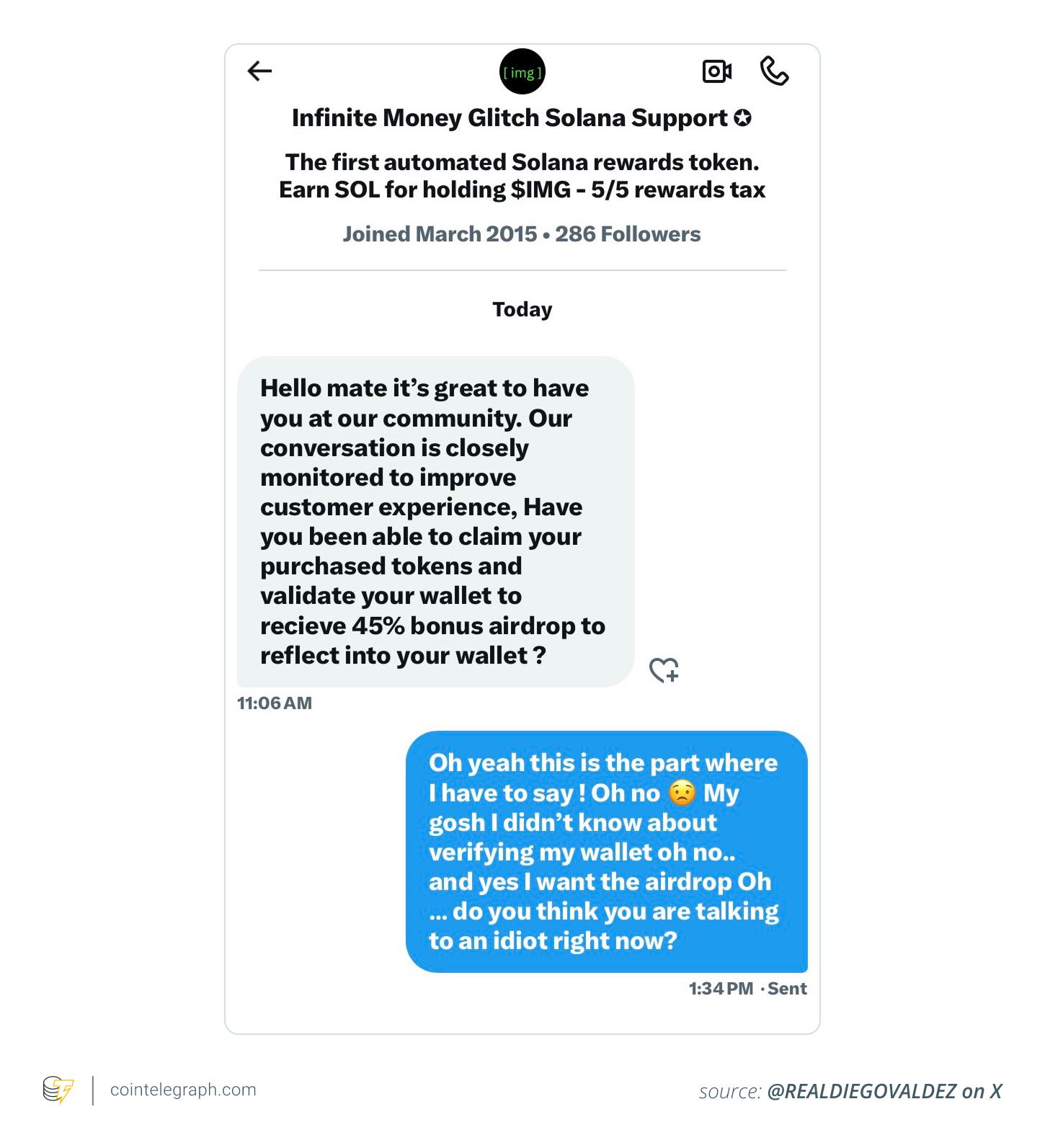🪂 How to Make Money with Crypto Airdrops (Without Getting Scammed)
-

Everyone loves “free money,” and in crypto, that usually means airdrops — projects giving away tokens to early users or community members. Done right, they can be insanely profitable (ENS airdrop in 2021 handed out thousands of dollars to .eth domain holders).
But in 2024–2025, fake airdrop scams drained over $9.9B from users, targeting viral projects like Hamster Kombat and Wall Street Pepe. If you’re not careful, the “free tokens” you chase could cost you everything.
Here’s how to actually profit — while staying safe.
- Learn the Difference: Real vs. Fake Airdrops
Legit airdrops = free token distributions for holding tokens, using apps, staking, or joining communities.
Fake airdrops = traps to steal your crypto via shady websites, malicious contracts, or “gas fee” demands.
 Rule #1: Real airdrops don’t cost you anything except maybe minor interaction (staking, testing, governance). If someone asks for your private key, ETH payment, or “wallet verification,” run.
Rule #1: Real airdrops don’t cost you anything except maybe minor interaction (staking, testing, governance). If someone asks for your private key, ETH payment, or “wallet verification,” run.- Red Flags That Scream “Scam”
 No official announcement on the project’s website or socials.
No official announcement on the project’s website or socials.
 Private key/seed phrase requests (100% scam).
Private key/seed phrase requests (100% scam).
 Upfront gas fees or crypto payments to “unlock” tokens.
Upfront gas fees or crypto payments to “unlock” tokens.
 Suspicious URLs with typos, extra characters, or fake domains.
Suspicious URLs with typos, extra characters, or fake domains.
 Sloppy grammar + urgency: “Claim NOW or lose out!”
Sloppy grammar + urgency: “Claim NOW or lose out!”
 Fake social proof: bot comments like “Just got 500 $XYZ!”
Fake social proof: bot comments like “Just got 500 $XYZ!”
 Unknown tokens with no whitepaper, team, or community.
Unknown tokens with no whitepaper, team, or community.
 Approval traps: malicious contracts that let scammers drain your wallet.
Approval traps: malicious contracts that let scammers drain your wallet.
 Redirects to wallet drainers disguised as claim pages.
Redirects to wallet drainers disguised as claim pages.
 Unrealistic rewards ($2,000 free tokens instantly).
Unrealistic rewards ($2,000 free tokens instantly).If you see any of these =
 Don’t touch it.
Don’t touch it.- How to Actually Make Money with Airdrops
Be early: Use new DApps, stake, test beta products. Many projects reward retroactive engagement.
Check official sources: Only trust announcements from a project’s verified site, X (Twitter), Discord, or Telegram.
Research tokens: Look for a roadmap, whitepaper, team credibility, and community chatter.
Use security tools: Regularly clean up token approvals with sites like revoke.cash.
Spread risk: Use separate wallets for testing vs. holding large funds.
- Examples to Learn From
Hamster Kombat: scammers faked withdrawal airdrops to steal logins.
Wall Street Pepe (WEPE): fake sites tricked users into signing contracts that drained wallets.
HEX & Sui: scam sites mimicked official pages to trigger malicious contracts.
LayerZero: imposters pushed fake “proof-of-donation” airdrops on X.
Even big-name projects aren’t safe from impersonators.
- The Future of Airdrops = Safer, Smarter Rewards
Projects are moving toward:
Activity-based airdrops (rewarding staking, governance, testing apps).
Retroactive rewards (tokens for past engagement).
AI-monitored models to filter bots and detect fake wallets.
This means the best way to make money safely is simply to be an active, genuine user of crypto ecosystems.
 Bottom Line:
Bottom Line:
Yes, airdrops can be free money — but scams are everywhere. Stay sharp, stick to official sources, and focus on activity-based opportunities. The real winners aren’t the fastest clickers — they’re the smartest and safest players. Forum Question: Have you ever scored big from an airdrop (ENS, UNI, Arbitrum), or did you ever get burned chasing a fake one?
Forum Question: Have you ever scored big from an airdrop (ENS, UNI, Arbitrum), or did you ever get burned chasing a fake one? -
This is such an important reminder. Too many people still think “airdrops = free ETH” without realizing the trap. I’ve seen friends fall for fake claim pages on Telegram where they signed approval contracts — wallets drained in seconds. The truth is the best airdrops (ENS, UNI, ARB, OP) didn’t even need a claim rush; they were distributed to users who had already been active. That’s the key: be early, be consistent, and never trust random links. The real money comes from being a genuine user, not a fast clicker.
-
I’ve been on both ends of this. The UNI and Arbitrum airdrops paid me thousands for just using the protocols early — pure upside. But I also lost some funds to a fake Sui claim site because I rushed without double-checking the URL. Lesson learned: one click can cost you everything. What excites me now is that projects are shifting toward activity-based rewards and retroactive drops, which means less room for scammers and more rewards for real communities. The future of airdrops is smarter, but staying cautious will always be rule #1.


















